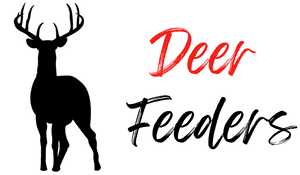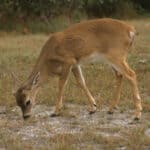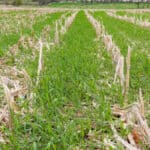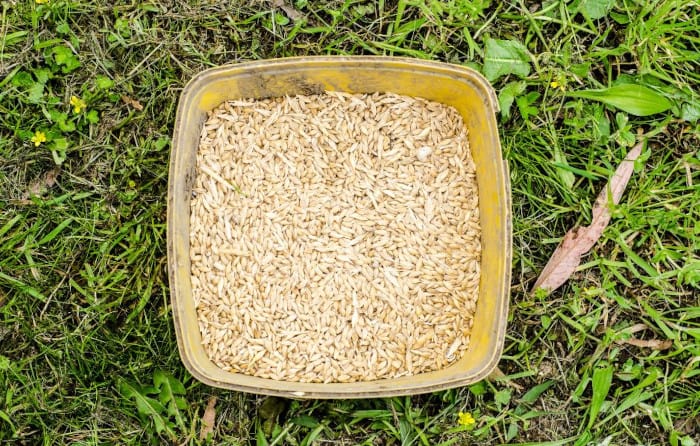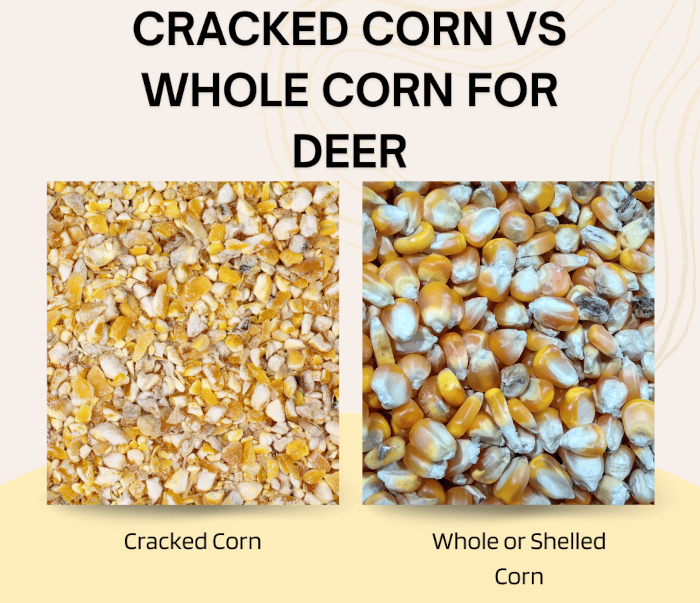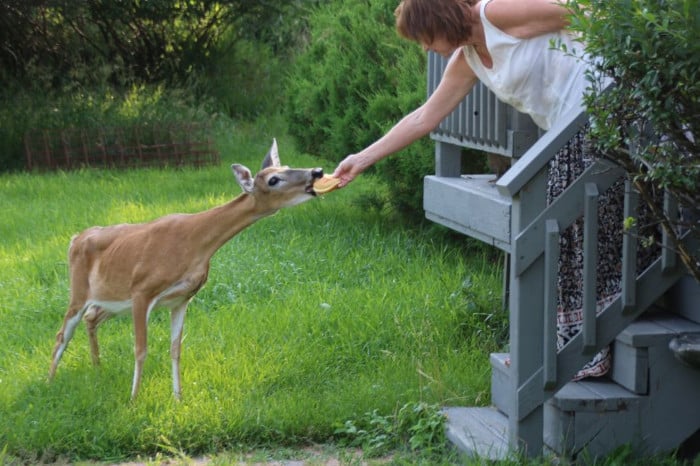What to feed deer and how to feed deer are interesting topics that open the door to all kinds of questions related to those two activities. One deer food-related question that seems to cause a great deal of confusion is this one: do deer eat corn cobs?
The confusion seems to originate with how the question is interpreted. Is the question asking if deer can eat corn on the cob or if deer can eat the corn cob itself?
Looking at how the question is framed, I will try to answer it from the perspective of whitetails consuming the corn cob as a standalone food item.
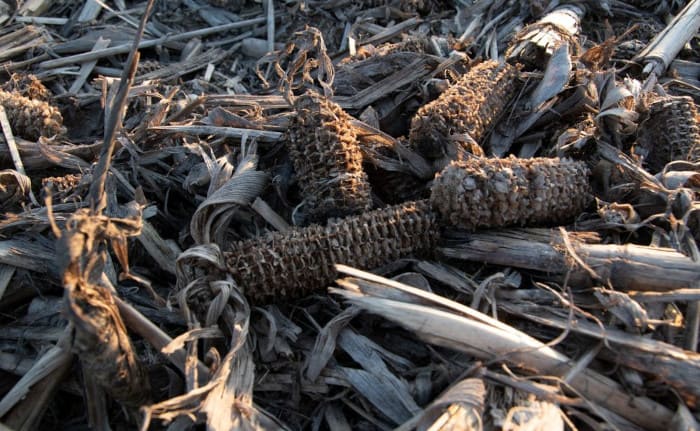
Key Takeaways
– Most species of deer will eat corn off the cob and the cob by itself.
– The cob has little nutritional value for deer, other than a few carbohydrates.
– The cob itself seems safe to feed deer in small amounts.
– Most whitetail deer will only consume the cob when other food options have been depleted.
What is a Corn Cob?
For the purposes of this post, I’m defining a corn cob as the cob portion of an ear of corn that exists after all the corn nuggets have been removed.
Again, I’m focusing on answering the question about deer consuming the cob itself, so I call an ear of corn that still has corn on it a cob of corn or corn on the cob.
Can or Will Deer Consume the Cob from a Corn Cob?
To be clear, I have seen whitetail deer eat the empty cob (as in a cob without any corn) on several occasions.
However, in my experience, whitetails seem to only consume the naked cob for consumption in times when other natural food sources are hard to come by.
When I observed this behavior in person or on a trail camera, it was usually during late winter or when snow was on the ground.
In one instance, I was in a ground blind with a teenager, and his father with the teen trying to bag his first deer. I’ve mentioned this in other parts of the site; I donate some time each year trying to introduce kids or teenagers to hunting or ones that are interested in taking their first deer.
In this situation, it was late December in North Carolina, with deer season ending in a few days. I was hosting the teen and his father as the teen was chasing his first deer.
We were sitting in a ground blind on the edge of two fields where I had observed some deer activity on trail cameras. A group of three does came into one end of the field and started foraging for food. They were a bit out of range for the teen’s comfort level, so we just watched them and hoped they would move our way.
I noticed they were feeding on something, so I pulled up my binoculars to take a look. I was surprised to see them eating old corn cobs without any corn attached. The old cobs were remnants of a corn pile I had set out at the beginning of the season. I observed all three does eat several old cobs each and then meander back into the woods.
I’ve also observed this behavior in other states, especially when the ground was covered in snow.
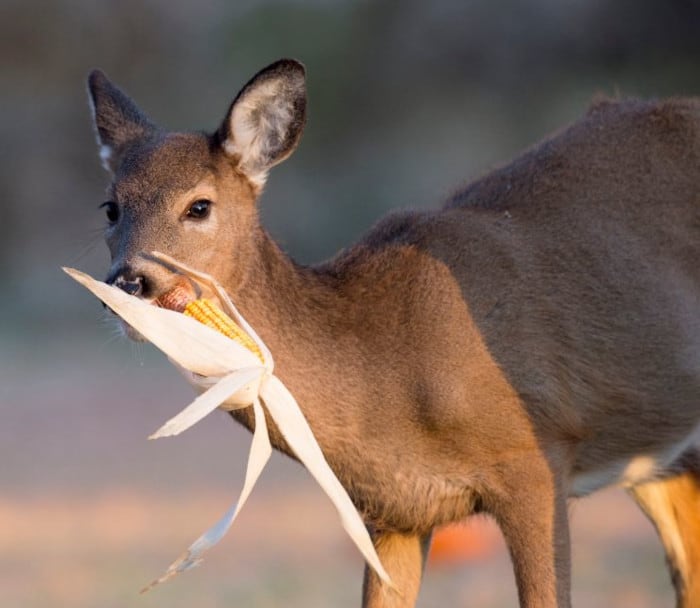
Nutritional Value of a Cob of Corn
I’ve discussed this topic with a deer biologist for the state, and the general consensus seems to be that the cob portion of a corn ear has very little nutritional value other than some basic carbohydrates and a few minerals.
However, when food is hard to come by for deer, every little bit of food helps. The carbohydrates help provide the energy necessary to continue foraging.
The average deer needs to eat between 6% and 8% of its body weight daily, so any food source is better than nothing.
Is it Safe for Deer to Consume Bare Corn Cobs?
While deer researchers and biologists theorize that a bare corn cob doesn’t taste nearly as good as corn itself, no existing data indicates that eating the cob itself poses any hazard to most deer species.
There are some concerns that eating a diet excessively high in carbohydrates can lead to digestive issues, including a potentially serious problem called acidosis.
Should Deer Be Fed Empty Corn Cobs?
Since the bare cobs don’t seem to pose any potential health issues for deer, you can potentially offer the empty cobs to whitetails in small amounts.
I wouldn’t suggest offering a large number of cobs as over consumption of them could lead to some carbohydrate-based issues. In addition, the cobs don’t really provide any significant nutritional value for deer either.
If you wanted to offer the local whitetail deer something to eat, there are food source items that offer better nutrition compared to a bare corn cob.
Examples of better food options for deer include:
- Oats
- Rye
- Clover
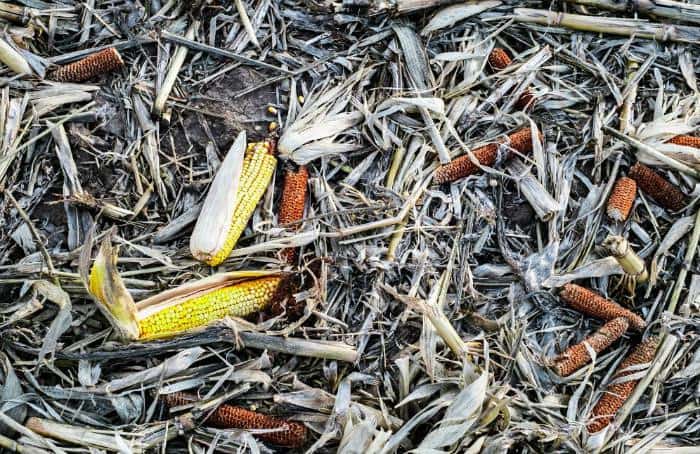
FAQS
Here are some frequently asked questions related to deer eating the bare cob from an ear of corn:
Will deer eat corn on the cob?
I actually did a separate post about whitetail deer consuming corn right off the cob (which can be seen here).
Can deer eat the corn and the cob off an ear of corn?
Deer have no trouble eating the corn from the cob and the cob itself. However, they prefer the corn over the bare cob and will typically only consume the bare cob when other food is hard to locate.
If my family eats corn on the cob, can I leave the empty cobs out for the deer living behind my house?
While deer corn on the cob and the empty cob is fine to leave out for deer, most deer biologists don’t recommend offering the empty cob from ears of corn grown for human consumption.
The corn grown for human consumption has a different nutritional value compared to deer corn and may be cooked or treated in materials like oil or butter that may be detrimental to a deer’s health.
